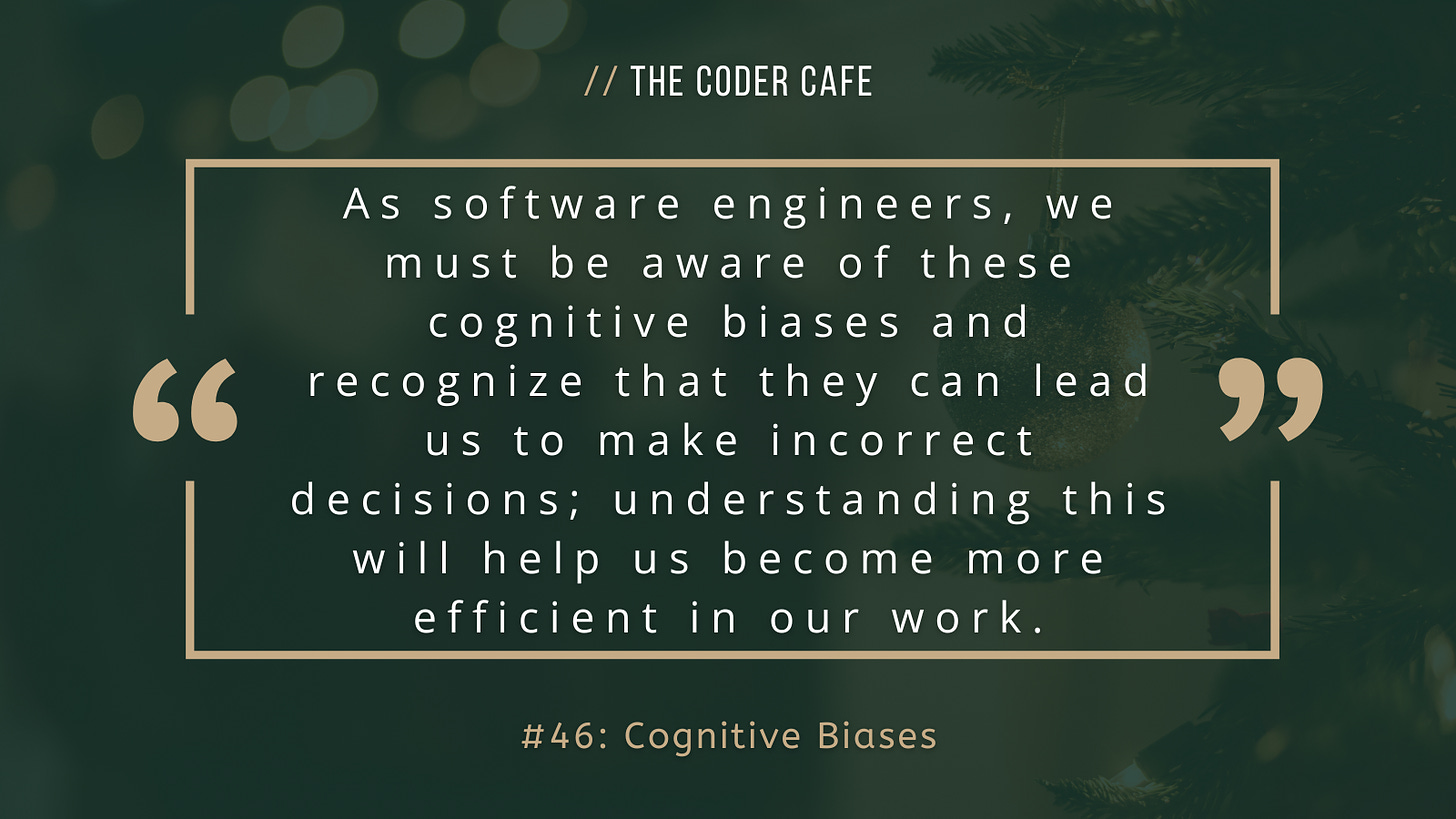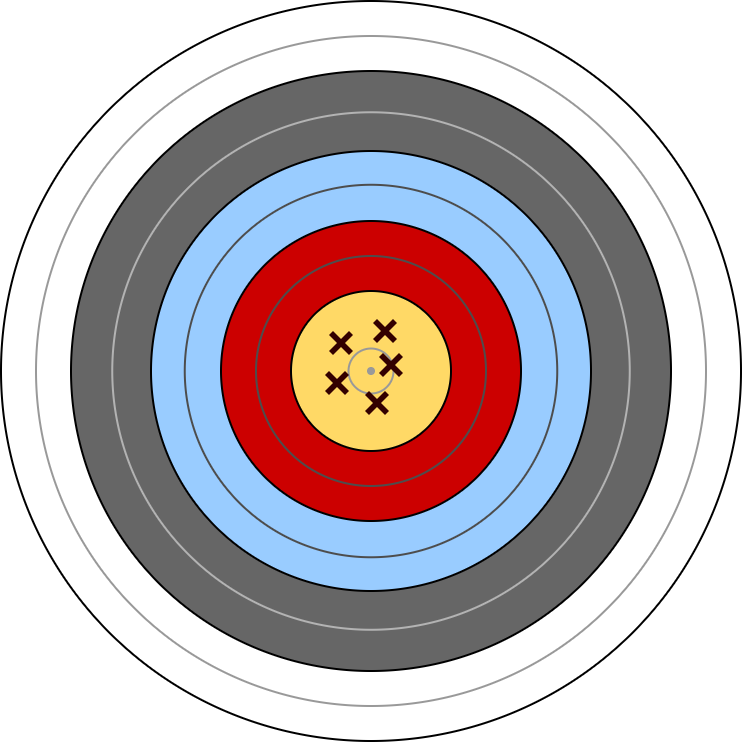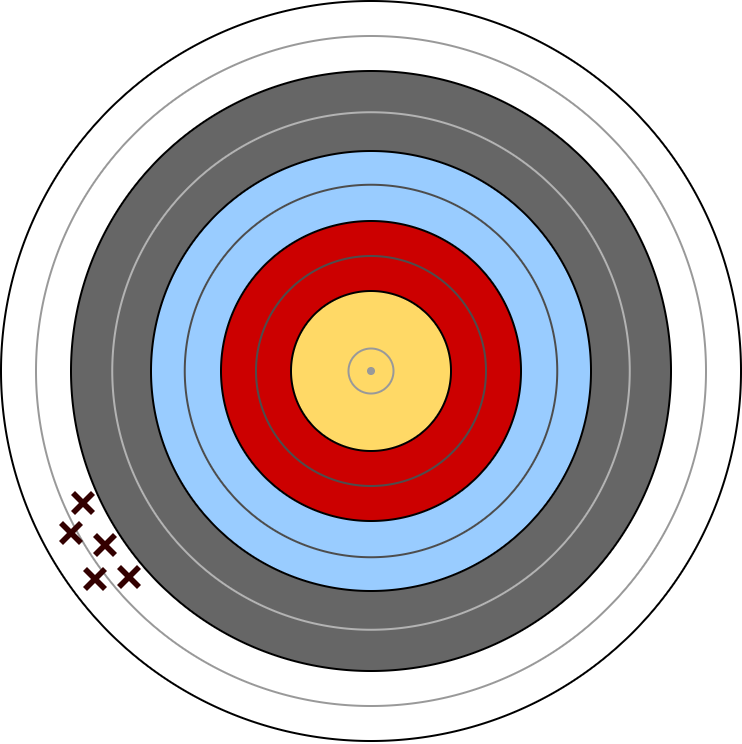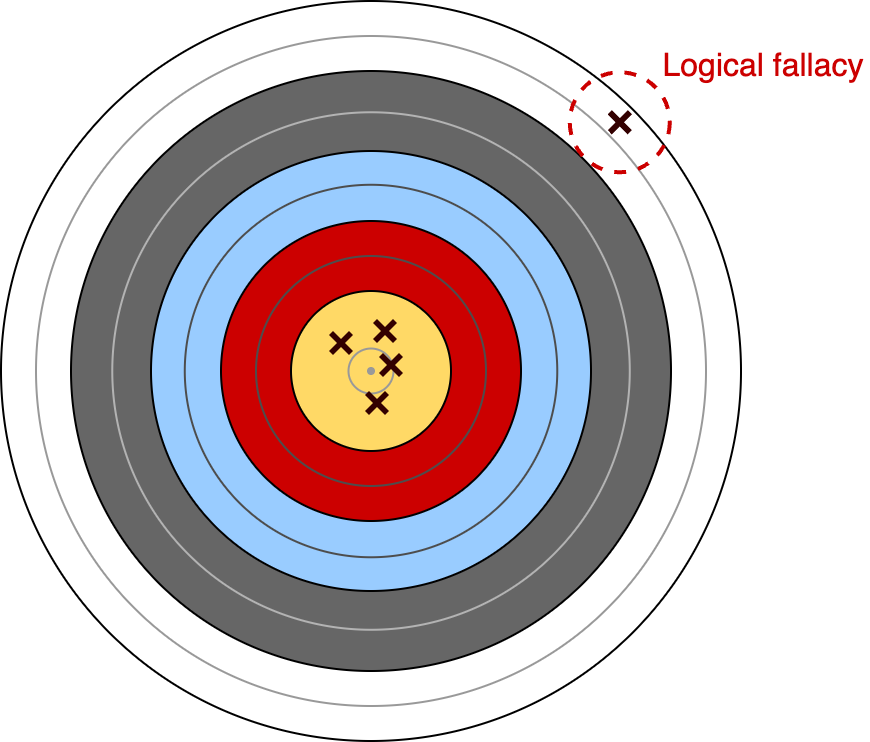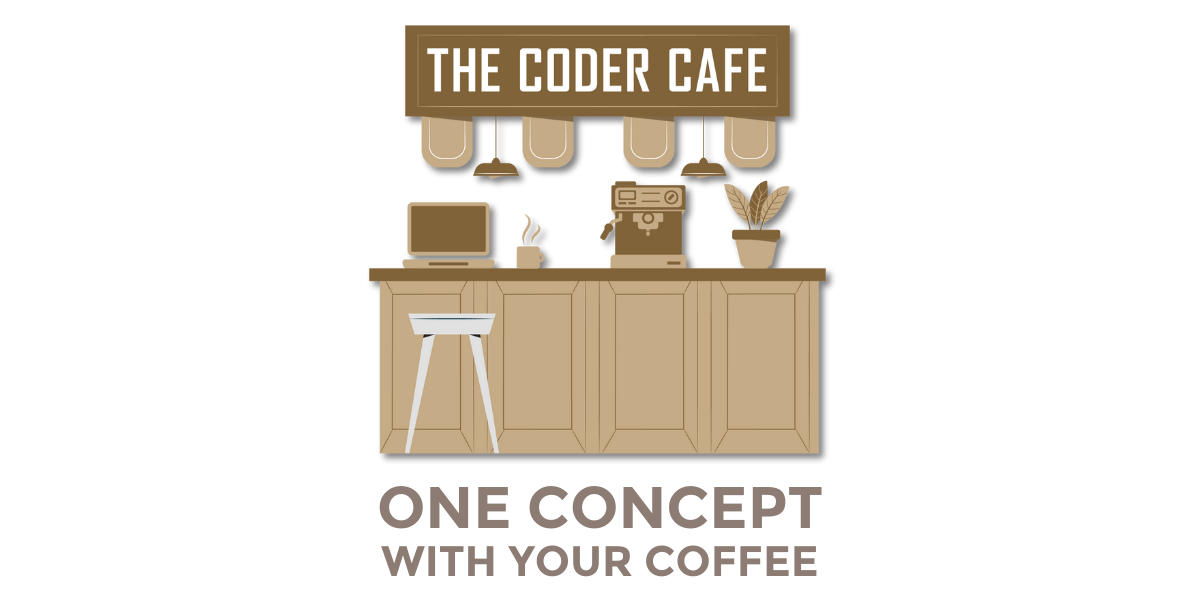Happy Monday! This week, we are exploring the theme of cognitive biases, and we will start by introducing the concept to ensure we all share the same fundamental level of knowledge on the topic.
Have you ever wondered why sometimes we make irrational decisions, even when we have all the facts? The answer often lies in cognitive biases, mental shortcuts our brains take that can lead to faulty reasoning and judgment:
A bias refers to a tendency or inclination that affects judgment or behavior. For example, a cultural bias is a tendency to judge people based on our own cultural experiences.
A cognitive bias is a specific type of bias related to how we process information in our brains. More specifically, it's a systematic pattern of deviation from norm/rationality in judgment.
Imagine a situation in which we repeatedly make the right decision:
Now, imagine that instead, in this situation, we systematically deviate from the right decision with a repeated pattern:
It’s pretty likely that if we face this situation again, our next decision will land in the same area. In this case, it means one or more cognitive biases influence our decision.
It’s important to note that cognitive biases shouldn't be confused with logical fallacies. A logical fallacy is a reasoning error that undermines the logic of an argument. They come, in most cases, from an error in a logical judgment:
Interestingly, cognitive biases are not inherently negative. Our brains have evolved over millions of years to rely on these shortcuts for efficiency, suggesting there are good reasons for their existence. The goal isn’t to eliminate all cognitive biases but to recognize that they exist and understand that the decisions we make may be flawed due to these biases.
One of the biggest challenges regarding cognitive biases is that it's often hard to recognize our own biases or those of others around us.
— David Susman
One way to explore cognitive biases is through the cognitive bias codex created by John Manoogian and Buster Benson. This codex categorizes these biases into four groups:
- Too much information: Biases that happen when we are overloaded with information.
- Not enough meaning: Biases that arise from the need to simplify complex information (e.g., stereotypes).
- Need to act fast: Biases related to quick decision-making under pressure.
- What we should remember: Biases influencing how we store and recall information.
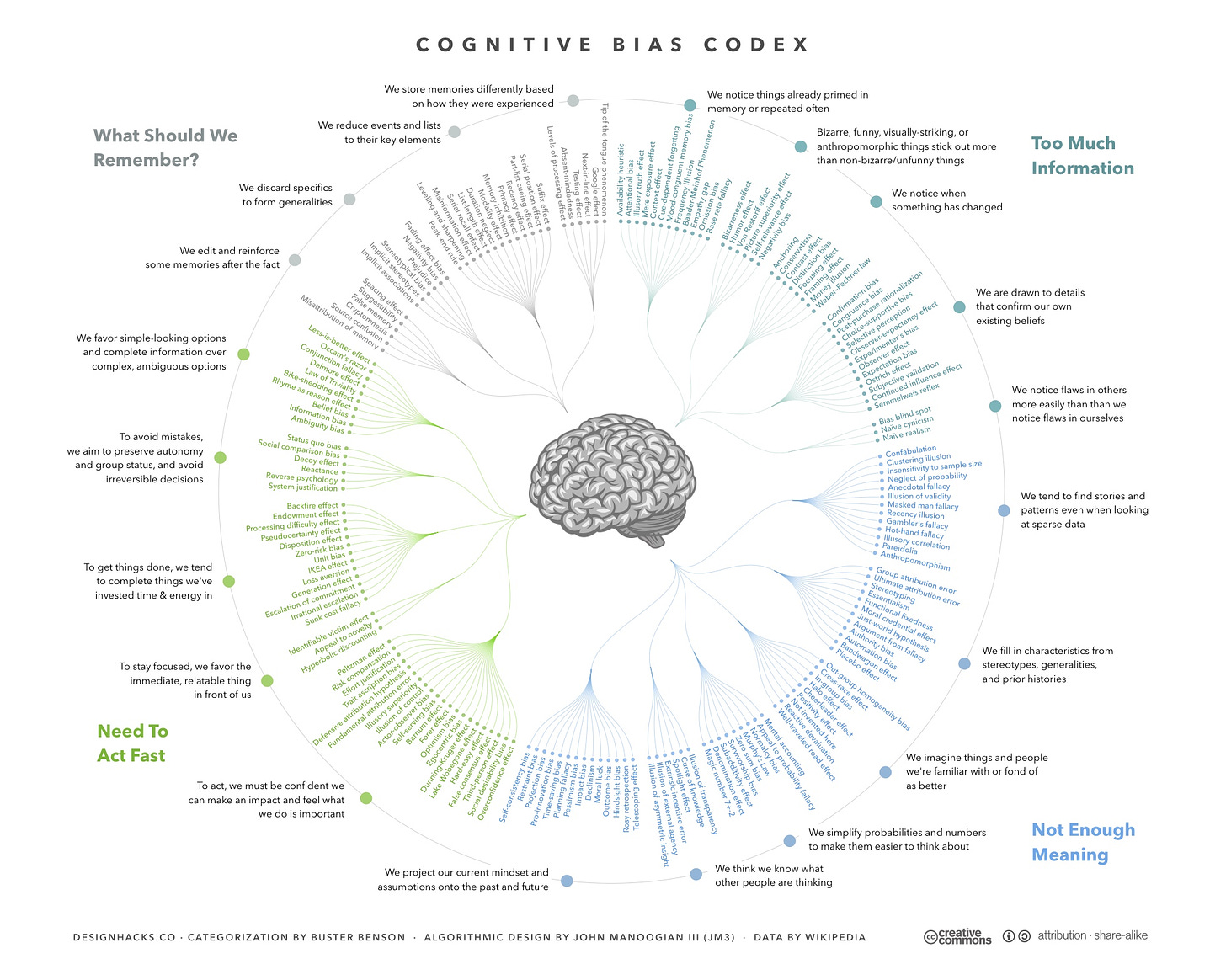
As software engineers, we must be aware of these cognitive biases and recognize that they can lead us to make incorrect decisions; understanding this will help us become more efficient in our work.
Explore Further
The cognitive Biases Explored in The Coder Cafe:
For the rest of the week, we will explore different cognitive biases, starting tomorrow with the confirmation bias.





